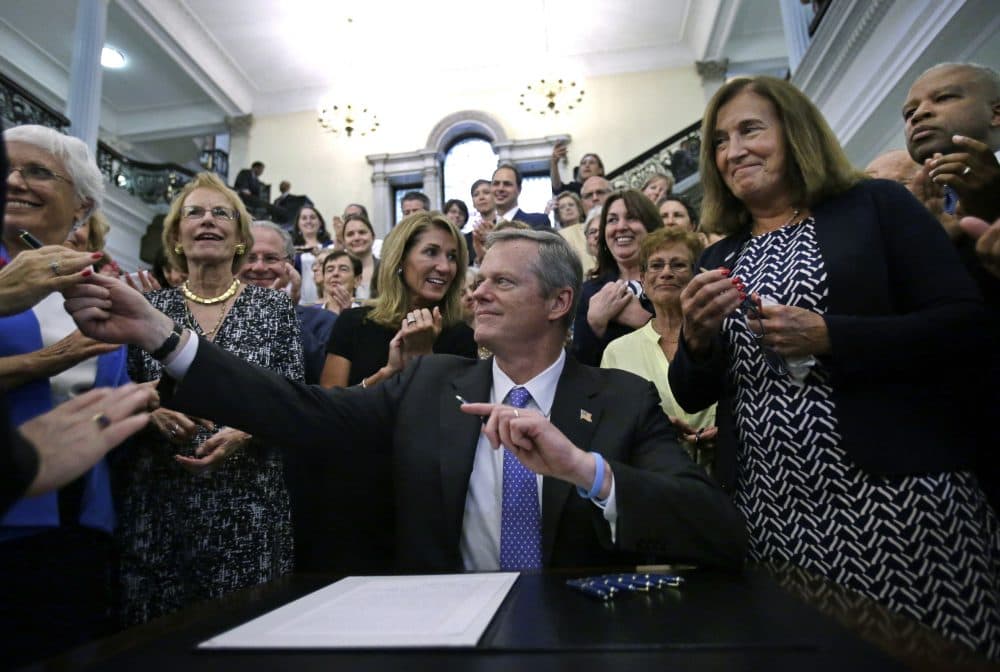Advertisement
Gov. Baker Signs Law Requiring Equal Pay For Comparable Work

Republican Gov. Charlie Baker signed into law Monday a bill requiring men and women be paid equally for comparable work in Massachusetts -- including what supporters say is a first-in-the nation provision barring employers from asking prospective workers to provide a salary history.
Baker signed the bill during a State House ceremony.
Women are currently paid on average about 82 percent of what their male counterparts make for comparable work in Massachusetts. For black and Hispanic women, the pay gap is even wider.
Moments before signing the bill, Baker said the legislation will help ensure that in Massachusetts "people are paid what they are worth based only on what they are worth and not on something else."
The bill attempts to define what constitutes comparable work in part by outlining legitimate reasons for differences in pay - including seniority, geographic location, experience, education, training, or a system based on sales.
In particular, supporters hailed the provision in the law preventing employers from asking prospective workers to tell them how much they were getting paid at prior jobs.
Supporters say that since women have historically been paid less than men, the practice of asking for a salary history can help perpetuate a cycle of lower salaries for women.
The bill wouldn't bar prospective employees from voluntarily offering information about their salary, however.
The law also lets employees discuss their salaries with other workers without facing retribution from their employer - a measure that could help workers discover pay inequities between men and women.
The Massachusetts House and Senate unanimously approved the legislation during a rare Saturday session last month sandwiched between the Republican and Democratic national conventions.
Democratic Sen. Karen Spilka of Ashland said Massachusetts has come a long way since it became the first state in the nation to approve a pay equity bill in 1945.
Spilka said the new law makes it clear that women working to support their families deserve fair pay and nothing less.
The bill's sponsor, Democratic Sen. Pat Jehlen of Somerville, also hailed the passage of the legislation.
"Today in Massachusetts, we can say that equal pay for equal work is not just a slogan. It's the law," she said.
But Jehlen also said that the work to ensure women are being paid fairly is not done.
Jehlen said that women working in jobs that have been traditionally filled by women - such as home care providers - are still not being paid enough to help support themselves and their families.
The new law also creates a three-year defense from liability to help encourage companies to correct compensation disparities between women and men internally before going to court.
During those three years, employers must complete a self-evaluation of their pay practices and demonstrate reasonable progress in eliminating pay disparities.
Employers would also be barred from reducing salaries to comply with the law.
The new law takes effect July 1, 2018.
This article was originally published on August 01, 2016.